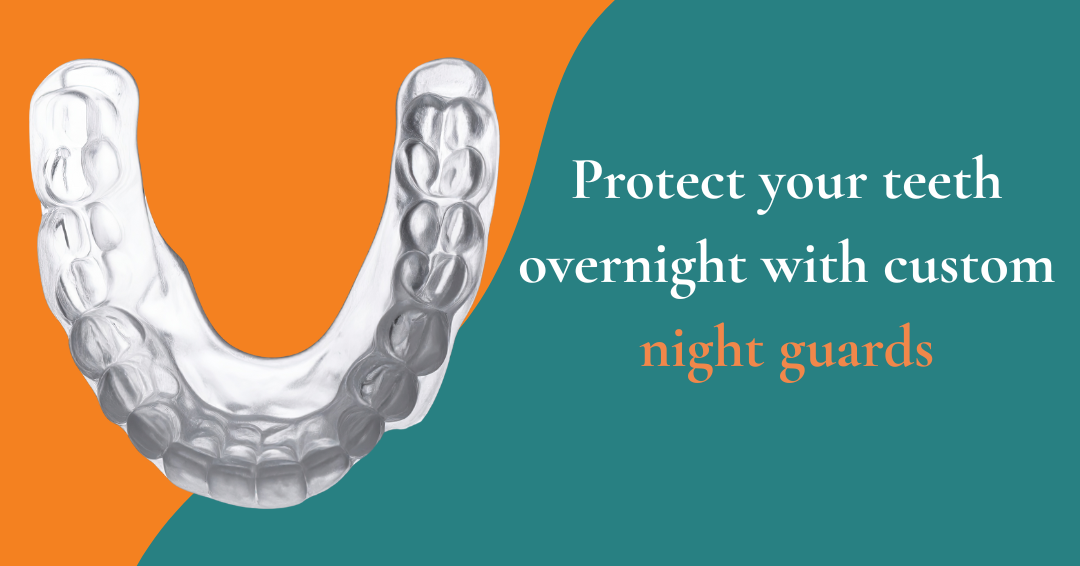Teeth Grinding & Orthodontics: When Night Guards Support Smile Stability After Braces or Aligners.
Finishing orthodontic treatment feels exciting. You spent months working toward a straighter smile, and seeing the final result brings confidence and pride. After braces or aligners come off, many people expect their new smile to stay perfect forever. Although alignment sets the foundation, keeping teeth in place long term requires care and protection. One important tool that helps protect your smile and prevent shifting for some patients is a night guard.
At Textbook Orthodontics, we meet many patients who are proud of their new smile but also deal with teeth-grinding habits, especially during sleep. Grinding places pressure on teeth and can slowly change alignment if not addressed. This is where night guards can play a helpful role.
Why Teeth Grinding Happens
Teeth grinding, also known as bruxism, can happen at any age. Many people do not even realize they grind their teeth until a dentist or orthodontist sees signs of wear. Grinding usually happens while sleeping, which makes it difficult to control without support.
Common causes include:
Stress or tension
Jaw pressure and muscle tightness
Bite imbalances
Sleep habits or airway issues
Daily clenching without noticing
Over time, grinding can lead to headaches, jaw discomfort, chipped teeth, and changes in alignment. This is especially concerning after braces or aligners because new smiles are still settling into place.
Why Protecting Alignment Matters
Your teeth do not simply stop moving once braces or aligners are removed. The bone and tissues around your teeth need time to adjust and strengthen. This is why retainers are important, yet retainers alone may not protect from grinding forces.
Teeth grinders may notice:
Sensitive teeth
Jaw tightness
Thinning enamel
Small chips in teeth
Worn biting edges
Tension headaches
Repeated grinding pressure can slowly shift teeth, making them lose the straight position achieved through treatment. Night guards offer cushioning and support to protect your smile during this vulnerable stage.
Night Guards vs Retainers: What is the Difference?
Many patients ask whether retainers and night guards are the same. They are not. Each serves a different purpose.
Retainers
Night Guards
Maintain tooth alignment
Protect teeth from grinding pressure
Thin and lightweight
Thick and durable
Designed to hold positions
Designed to absorb force
Worn nightly in most cases
Worn during grinding-risk periods
Some patients need both, depending on their bite and grinding habits. Our team evaluates each case to recommend the right plan.
Who Benefits From Night Guards After Braces or Aligners
Not everyone needs night guards after orthodontic treatment, but many find them helpful. You may be a candidate if you:
Wake up with jaw soreness
Hear grinding from yourself at night
Have worn teeth edges
Notice tightness in the face or temples
Feel pressure in your jaw when stressed
Students, working professionals, and individuals with busy routines often develop grinding without realizing it. Protecting your smile early prevents long-term issues.
How Night Guards Help Protect Your Smile
Night guards act as a cushion between your teeth. They do not stop grinding completely, but they protect the teeth and jaw from stress. This can help maintain alignment and comfort after orthodontic care.
Key benefits include:
Preventing wear and tear on teeth
Reducing jaw tension
Supporting joint comfort
Helping maintain new alignment
Protecting enamel from stress
Many patients feel relief within days of using a night guard. It becomes as routine as brushing or flossing.
What to Expect When Getting a Night Guard
The process is simple and comfortable. It usually includes:
Dental evaluation and bite check
Impression or digital scan of your teeth
Custom guard made to fit your mouth
Fitting and comfort check
Custom night guards provide a better fit and support than store-bought options, which can feel bulky or move around at night.
Daily Care Tips for a Healthy Smile After Orthodontic Treatment
Keeping your new smile healthy includes simple habits:
Wear retainers as recommended
Use night guards if you grind your teeth
Brush and floss twice a day
Visit your orthodontist for check-ups
Stay aware of jaw tension and stress habits
These steps help protect both oral health and long-term alignment.
Final Thoughts
Your orthodontic journey does not end the day braces or aligners come off. Keeping your smile stable requires continued care and awareness. Grinding is common, and night guards offer a comfortable, effective way to safeguard your teeth and protect the results you worked hard to achieve. At Textbook Orthodontics, we guide patients through treatment and aftercare so they enjoy their straight, healthy smile for years to come.

